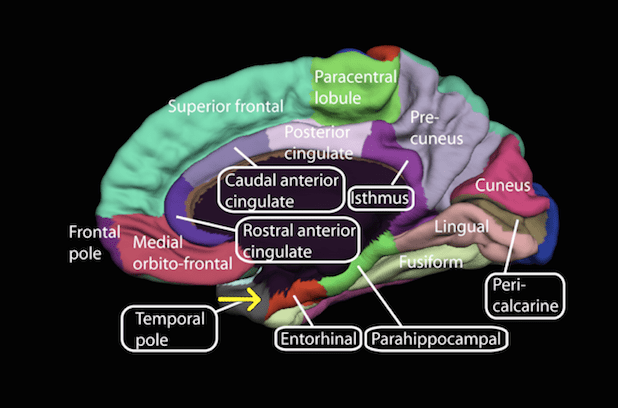The link between wealth and attainment is a subject that’s close to my heart, or perhaps more accurately my cerebral cortex. Like 20 per cent of the population I was raised in technical poverty. My first home was a touring caravan. It’s safe to say that no statistician would have expected me to amount to anything – especially if they’d had access to the findings of a new study in Nature Neuroscience.
Researchers have found that there is an association between low family income and the structure of the brains of children. The study looked at the relationship between wealth and the size of the brain’s surface area. The measurements were derived from a method of analysing of biological form called morphometrics. I can’t stress too strongly that this has nothing to do with the pseudoscience of phrenology beloved by racists. Nor does it lead us into the minefield of IQ tests.
The income/brain size association isn’t a new discovery. But what Nature Neuroscience has found out is that the relationship is more pronounced at very low income levels.
The regions most affected are those which deal with language, reading, spatial skills and cognitive control. It isn’t hard to imagine how impaired abilities in these areas will also damage performance in school and the workplace.
So poor children can be condemned by their physiology (which doesn’t mean it’s genetic – much of the damage appears to be environmental in origin). Their chances in life are not only hindered by the situation they are born into; the physical size of their brains holds them back in later life, too.
Yet there’s nothing inevitable about this. The study suggests to me that a thousand pounds a year could mean the difference between university and the dole queue. That’s speculation, but the study gives us hard data showing that a small difference in income has a pronounced effect. And that’s a tragedy.
A teacher I know works in one of the most deprived areas in the country – my old school, as it happens. She attributes the poor performance displayed by her least capable pupils to foetal alcohol syndrome, among other things. She finds it hard to discipline them because their inability to concentrate appears to be innate. This study provides evidence for that rather depressing conclusion.
I won’t dwell on the politics of class here; this is a health blog, after all. There is no magic solution to poverty on the Left or the Right. But for what it’s worth I do have a suggestion for poor parents. Having raised two daughters (on benefits for the most part) I know that books can help.
Research carried out last year found that early reading doesn’t just improve literacy, but also develops the brain in many other practical ways. As the University of Edinburgh’s Dr Stuart Ritchie put it:
Since reading is an ability that can be improved, our findings have implications for reading instruction. Early remediation of reading problems might aid not only the growth of literacy, but also more general cognitive abilities that are of critical importance across a person’s lifetime.
My eldest daughter has been in school for less than a year, but her vocabulary is better than that of most teenagers. I attribute that to the sheer amount of words she absorbed when her brain was at its most malleable. To this day I can recite the whole of The Gruffalo, although she has sadly moved on. We’re reading Alice in Wonderland now. Actually, she’s reading it to me.







Comments